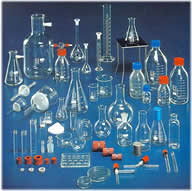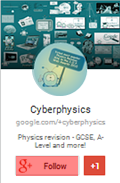Safety in practical lessons that use GLASSWARE
 Any practical session that requires any equipment that is made (or part of which is made) of glass should be carefully overseen and the pupils should be warned of the danger of cutting themselves.
Any practical session that requires any equipment that is made (or part of which is made) of glass should be carefully overseen and the pupils should be warned of the danger of cutting themselves.
BEFORE THE SESSION STARTS THE GIRLS SHOULD BE ENCOURAGED TO INSPECT THEIR EQUIPMENT AND QUERY ANY BROKEN/CRACKED/CHIPPED ITEMS (THIS IS ESPECIALLY IMPORTANT WHEN HEATING IS INVOLVED!)
- Much of the equipment in the department is very old and some of it needs replacing. Staff must be aware that all equipment that has glass parts is a hazard.
- The most common cause for glass breakage is in the use of the ray lamps. The lenses are slotted in, not fixed, and if the girls do not handle the boxes correctly the lenses drop out. They should always be instructed how to carry the ray-boxes safely whenever they are used.
- Any broken glass must be disposed of in the 'Glass Bin'. This is clearly marked to be for glass items only. Cleaning Staff are aware that any sharp objects will be put in that bin.
- Cracked or chipped beakers, measuring cylinders, watch glasses, test tubes, boiling tubes, stirring rods etc. must not be used. They should be disposed of in the glassware bin.
- Broken thermometers must be properly disposed of. If they contain mercury, flowers of sulphur should be sprinkled over any spillage of mercury to prevent the vapour from escaping into the laboratory. The lab technician should be summoned should a mercury thermometer be broken to carry out this procedure and to dispose of the pieces properly.
Studentss should be made aware of the hazard of mercury fumes otherwise they may be tempted not to disclose breakage of the thermometer and simply put the broken instrument back in its case.
- Glass blocks, lenses and prisms are expensive. If they are chipped but the chip is not sharp they are therefore still used but girls must have the risk of chipped equipment pointed out to them and the member of staff in charge of the group must assess which pieces that are chipped can be safely used. Any that are at all dangerous must be binned. Eventually all cracked equipment of this type will be phased out.
- All other glass breakage must be assessed individually by the member of staff concerned. Cracked dial covers on meters are sometimes safe to touch but may need sellotape over the crack to render it safer. Discuss such breakages with the technical Staff and/or Head of Subject/Department. IF IN DOUBT DO NOT USE IT!
ALL GLASS FRAGMENTS MUST BE DISPOSED OF IN THE 'GLASS ONLY BIN' AND THE TECHNICIAN SHOULD BE INFORMED OF THE BREAKAGE.
SEE THE 'HEATING SUBSTANCES PAGE' FOR DANGERS ASSOCIATED WITH HEATING GLASS EQUIPMENT .
Extracted from WGHS Physiscs Department hHandbook written by L.O. Jones 2005



 Any practical session that requires any equipment that is made (or part of which is made) of glass should be carefully overseen and the pupils should be warned of the danger of cutting themselves.
Any practical session that requires any equipment that is made (or part of which is made) of glass should be carefully overseen and the pupils should be warned of the danger of cutting themselves. 


